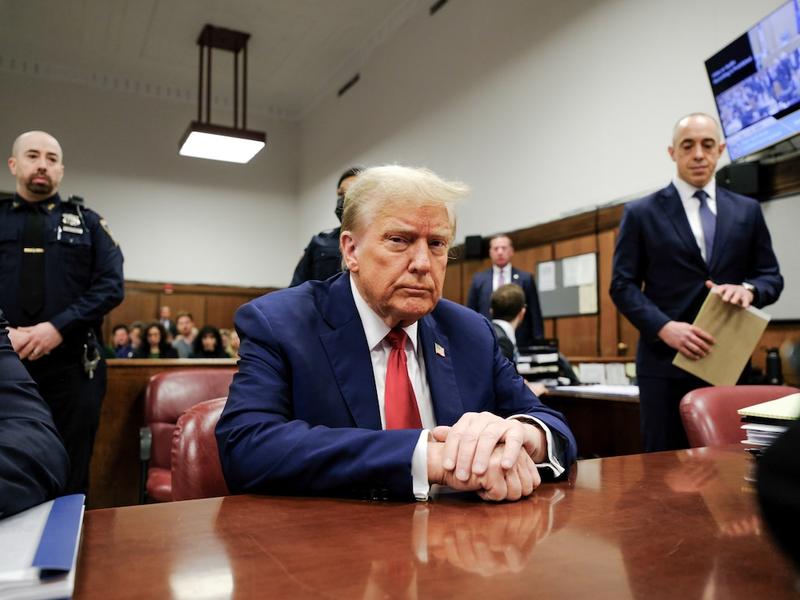
Earlier this week, Punchbowl News reported that House Appropriations Chair Rosa DeLauro (D-CT) and her counterpart in the Senate, Patrick Leahy (D-VT), were going to introduce legislation returning earmarks to the appropriations process. On Tuesday, Majority Leader Steny Hoyer told his caucus that the move would have bipartisan support. This isn't that much of a surprise. DeLauro and other Democrats were openly talking about getting rid of the 2011 moratorium on earmarks last year. Republicans had even flirted with the idea of returning the earmark back in 2017.
The argument for support of earmarks is they are the grease needed to unlock a gridlocked system. Diana Evans, a political scientist at Trinity College and an expert on pork-barrel spending, puts it this way: "An earmark is money provided for an individual project in an elected official's district, as a way of encouraging that official's vote for a spending bill." Her research has found, for example, that "earmarks helped transportation committee leaders pass three massive highway bills, overcoming significant policy controversies surrounding each bill." Democrats and Republicans may not agree on much these days, but they all like to boast about bringing key projects and dollars to their districts.
But, that 'all politics is local' era when bringing home the bacon was a sure-fire re-election strategy has passed. Instead, all politics — from city council to Congress — is national. There are plenty of reasons for the nationalization of our politics. The death of local media is a big one. When I first started covering Congress, local papers were the only way for members of Congress to reach their constituents. And, there was no better way to get in the local press than by showing up with a bunch of federal money for a key local project. I distinctly remember an interview I had back in the 1998 cycle with Democratic candidate Ronnie Shows, a local official running for an open congressional seat outside of Jackson, Mississippi. When I asked him about his top priority in Congress, he answered, "Four-lane highways." In fact, I recall that was his answer to a lot of the questions I asked him. In an interview with NPR last year, Kansas City, Missouri Democratic Rep. Emanuel Cleaver — a 20 year veteran of the House — reminisced about the deals Republicans and Democrats could cut thanks to earmarks. "This used to be a time everybody was hallelujah. I mean, Republicans, Democrats dancing, kissing, you know, just — this was, like, the time to be saved."
Today, members are more interested in getting on cable TV or going viral on YouTube. With so few members sitting in competitive districts (just 16 House members sit in a district carried by the presidential candidate of the other party), the need to show tangible results from working with the other side or voting for a controversial bill is also less important. Even in a primary, boasting about pork doesn't give incumbents the kind of teflon coating it once did. As one GOP consultant said to me after the 2020 elections, "accomplishments have never meant less in a Republican primary." Instead, this person noted, "it is all about conviction and grievance." And, of course, fealty to Trump.
But, more importantly, our deep division is driven not by disagreements over policy or process but by the belief that the other side threatens the country's continued existence. A Pew Research poll from October found that "eight-in-ten of those who support Biden (80%) and Trump (77%) say they fundamentally disagree about core values; only about one-in-five say their differences are limited to politics and policies." Almost all Biden and Trump supporters believed that if the other candidate won the election, he would do "lasting harm" to the country. Donald Trump warned his supporters repeatedly that Democrats were intent on destroying America's heritage and values. Democrats boasted of their membership in the "resistance." Getting the appropriations process more streamlined is not going to fix this kind of distrust and disgust.
And then, there is the PR problem. For the last ten years, both sides have recast themselves as plucky outsiders, eager to upend the clubby, self-dealing ways of Washington, DC. Many Republican lawmakers boast of sleeping in their offices to signal that they have not 'gone Washington.' Democrats flex their anti-establishment cred by shunning corporate PAC donations. Even when given a chance to upgrade, most members decline and trudge back to coach. None want to be captured on someone's smartphone sipping chardonnay while reclining their first-class chair.
Recognizing the optics problem, write Caitlin Emma and Heather Caygle in POLITICO, "[a]ppropriators hope to recast the politically taboo spending practice of earmarks — which propelled several scandals on Capitol Hill during the early 2000s — as funding for "community projects" in an attempt to break from its reputation as wasteful and secretive. Through the appropriations process, Democrats could fund a limited number of local projects from specific pots of federal cash, while banning money from going to recipients like for-profit businesses." But, you can't put the genie back in the bottle. No matter how many 'guardrails' legislators put around the process, it will still be depicted by opponents as graft. And, voters are more likely to believe any insinuations of abuse. Or, as one Senate staffer told me, "we will all be defined as crooks by the next earmark scandal. Which is inevitable."
Congressional old-timers love to blame two things in particular for the death of bipartisanship and comity in Congress: the banning of earmarks, and the shaming of members for bringing their families to live with them in DC. Both were ways to help humanize and normalize business in this town.
But, there aren't that many 'old-timers' left in Congress. In fact, according to CRS Research, the majority of them have been there for eight years or less. Returning to the practice of earmarks won't be a 'return to normal' for them. In fact, for many, it will be a return to the very practices they ran against in the first place. I understand that lawmakers want to find ways to fix our broken legislative process. But, in this nationalized political environment, where the color of a congressperson's jersey matters more than almost anything else about them, it's hard to see earmarks as the right answer.
Image: Rep. Bill Flores, R-Texas, poses with Faye, a pot belly pig, after a news conference held by Citizens Against Government Waste at the Phoenix Park Hotel to release the 2017 | Credit: Photo By Tom Williams/CQ Roll Call)










Subscribe Today
Our subscribers have first access to individual race pages for each House, Senate and Governors race, which will include race ratings (each race is rated on a seven-point scale) and a narrative analysis pertaining to that race.